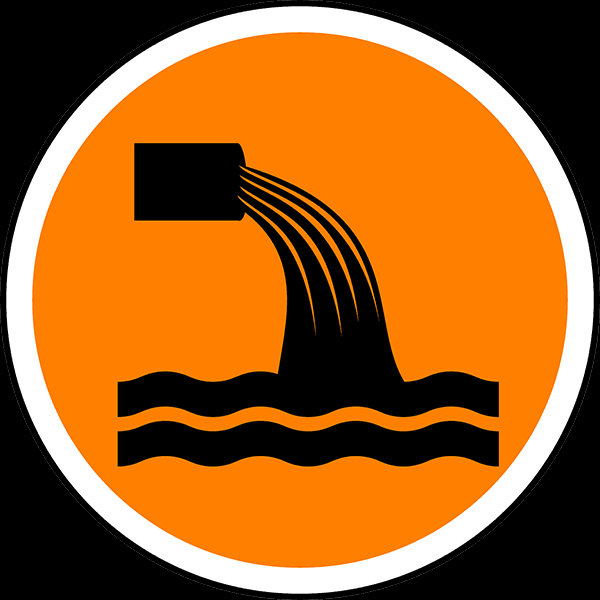The Only Guide to Reclaim Waste
The Only Guide to Reclaim Waste
Blog Article
Reclaim Waste Things To Know Before You Get This
Table of ContentsLittle Known Questions About Reclaim Waste.Some Of Reclaim WasteHow Reclaim Waste can Save You Time, Stress, and Money.The Of Reclaim WasteHow Reclaim Waste can Save You Time, Stress, and Money.
Domestic sewage waste refers to the waste and items from a property septic tank. The appropriate monitoring and disposal of domestic sewer waste require fluid waste to be transferred to a sewage therapy plant where the correct techniques and devices are used to purify and dispose of waste.
Commercial waste usually includes prospective hazards, such as flammable products or a combination of fluid and solid waste items, and requires a more sophisticated and in-depth disposal process. The disposal of commercial waste typically involves the purification of waste prior to transport to ensure secure and proper disposal. Industrial waste is developed from by-products and drainage of industrial procedures and production.
This kind of waste can not utilize the very same sewer management transportation or procedures as septic or business fluids. The commercial waste monitoring procedure requires the evaluation and testing of liquid waste prior to it goes through the disposal process (liquid waste removal melbourne). Runoff waste is the liquid waste that comes from overflow and excess stormwater in extremely booming areas or cities
Runoff waste can cause contamination and flooding otherwise handled properly. Find out more about sewer cleaning and waste monitoring. Making sure proper waste management can protect against catastrophes and decrease ecological injury. Both people in residential settings and professionals in business or production sectors can take advantage of recognizing the procedures and regulations of liquid waste administration.
All about Reclaim Waste
Contact PROS Solutions today to find out about our waste management and disposal solutions and the proper ways to care for the liquid waste you generate.
(https://hub.docker.com/u/reclaimwaste1?_gl=1*1980ev1*_ga*MTgwOTc3Nzc2OS4xNzMxMzI1Mzkw*_ga_XJWPQMJYHQ*MTczMTMyNTM5MC4xLjEuMTczMTMyNTcwOC4xMC4wLjA.)This supposed 'wastewater' is not just a crucial source but, after therapy, will certainly be released to our land, waterways or the ocean. Used water from commodes, showers, bathrooms, kitchen area sinks, washings and commercial procedures is known as wastewater.

water made use of to cool equipment or tidy plant and devices). Stormwater, a type of wastewater, is overflow that flows from agricultural and city locations such as roofing systems, parks, yards, roads, paths and seamless gutters right into stormwater drains, after rainfall. Stormwater streams untreated directly to regional creeks or rivers, ultimately getting to the ocean.
Reclaim Waste Can Be Fun For Anyone
In Queensland, most wastewater is dealt with at sewer treatment plants. Wastewater is transferred from residential or commercial websites with a system of sewers and pump terminals, known as sewerage reticulation, to a sewer therapy plant. City governments develop, keep and run most sewage treatment plants. Operators are certified under the Environmental Defense Act 1994 to release cured wastewater at an appropriate ecological requirement into waterways.
The Department of Natural Resources recommends regional governments regarding handling, operating and preserving sewage systems and treatment plants. In unsewered locations, city governments may need householders to mount private or family sewage therapy systems to treat domestic wastewater from toilets, kitchens, restrooms and washings. The Department of Natural Resources authorizes the usage of house systems when they are proven to be reliable.
In some new subdivisions, therapy of some stormwater to eliminate clutter, sand and crushed rock has started using gross toxin catches. Wastewater therapy occurs in four phases: Removes strong matter.
Wastewater after that moves into huge tanks where solids settle and are removed as sludge. Grease and scum are skimmed from the surface area. Utilizes small living microorganisms called micro-organisms to break down and get rid of staying dissolved wastes and great fragments. Micro-organisms and wastes are incorporated in the sludge. Eliminates nitrogen and phosphorus nutrients that can create algal blooms in our rivers and intimidate water life.
Not known Factual Statements About Reclaim Waste
Nutrient removal is not offered whatsoever sewage treatment plants because it calls for pricey specialised equipment. It is coming to be a lot more typical in Queensland. Clear fluid effluent created after therapy may still have disease-causing micro-organisms. If this effluent is released into rivers such as rivers or the sea, the micro-organisms will eventually die out.

A lot of wastewater moves right into the sewerage system. Under the useful link Act, regional governments administer authorizations and permits for eco pertinent activities (Periods) including wastewater releases that might have a local influence.
7 Simple Techniques For Reclaim Waste
Otherwise, samples are taken for research laboratory evaluation. Frequently numerous examinations are required to establish the levels of each of the various contaminants such as oils, hefty metals and pesticides in water. Tracking offers factual details about water top quality and can verify that permit problems are being fulfilled. The information acquired through tracking offers the basis for making water quality decisions.
Report this page